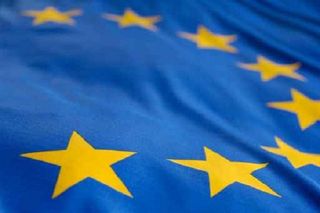EU files antitrust charges against Google - and targets Android
European regulators finally press charges against Google over alleged search bias

The EU's antitrust regulator has filed its allegations against Google over search dominance, and kicked off a new investigation into Android.
The charges stem from long-running accusations that Google favours its own services over rivals in its search engine.
The European Commission has been investigating the charges for more than five years, and can issue fines up to a tenth of a company's annual revenue - a fine which in Google's case could amount to more than $6 billion.
"The Commission's objective is to apply EU antitrust rules to ensure that companies operating in Europe, wherever they may be based, do not artificially deny European consumers as wide a choice as possible or stifle innovation," said the EU Commissioner in charge of competition policy, Margrethe Vestager.
"In the case of Google I am concerned that the company has given an unfair advantage to its own comparison shopping service, in breach of EU antitrust rules," she said.
"Google now has the opportunity to convince the Commission to the contrary. However, if the investigation confirmed our concerns, Google would have to face the legal consequences and change the way it does business in Europe."
The European Commission said it was also opening an investigation into aspects of the Android mobile operating system, notably whether Google hindered the development and market access of rival operating systems, apps or services.
Get the ITPro. daily newsletter
Receive our latest news, industry updates, featured resources and more. Sign up today to receive our FREE report on AI cyber crime & security - newly updated for 2024.
"Smartphones, tablets and similar devices play an increasing role in many people's daily lives and I want to make sure the markets in this area can flourish without anti-competitive constraints imposed by any company," she said.
Google response
Google hadn't immediately commented on the charges, but said in a memo sent to employees yesterday that it has a "very strong case", according to documents seen by Recode.
"Competition online is thriving despite what many of the complainants in this case allege," the report cited the memo as saying.
The leaked document points out that many Google searches give a direct answer, rather than direct the user to a page, and that competition is growing in the form of rival search engines such as Bing but also voice assistants such as Apple Siri. Plus, much web-connected activity is in apps, not the web, Google pointed out.
The initial filing from the EU is called a Statement of Objections (SO), and makes up the preliminary objections, to which a company can then respond. The Google memo described that as "an opportunity for Google to tell our side of the story".
"The back-and-forth over an SO [Statement of Objections] can take some time (even a year or two), and in a number of cases has resulted in the Commission modifying their claims or settling the case," the memo added.
"If the two sides cannot settle their differences, the Commission issues an infringement decision, which can be appealed in court."
Net Applications data shows Google has 62.3 per cent of global market share, but that includes markets such as China, which is dominated by Baidu.
Rival stats group StatCounter shows Google with 89 per cent share globally, and 91 per cent in Europe.




